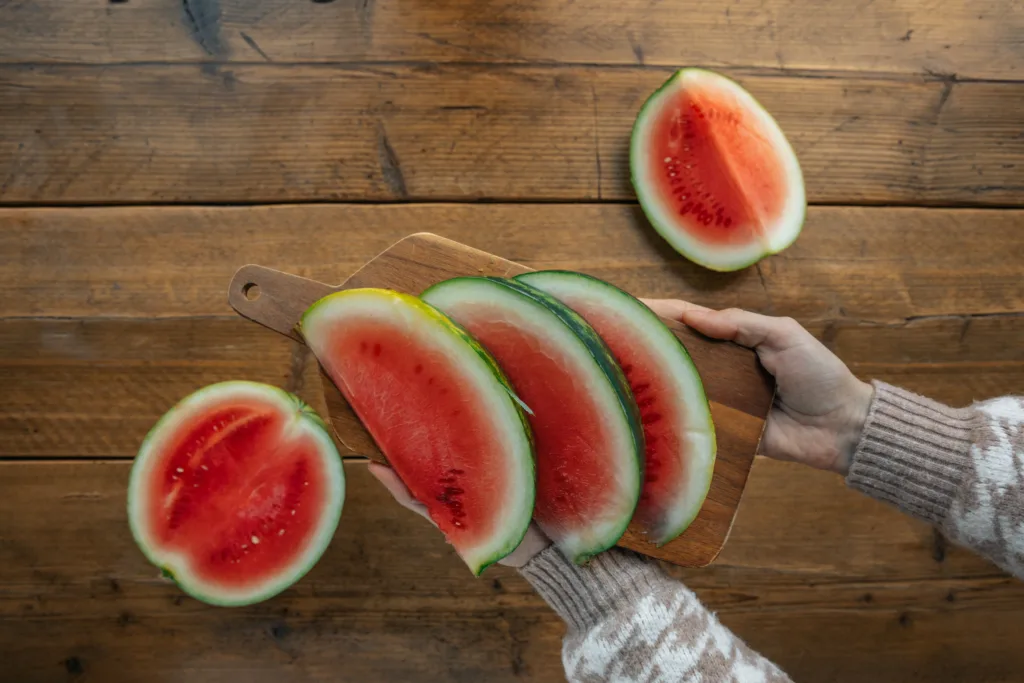Congratulations on your new bundle of joy! While the journey of motherhood is filled with countless moments of joy and wonder, it can also bring about some unexpected changes, including weight gain after childbirth. But fear not, because in this article, we will explore various strategies and tips to help you manage and maintain a healthy weight after giving birth.
Understanding Postpartum Weight Gain
After childbirth, it’s not uncommon for women to experience some degree of weight gain. There are several factors at play that contribute to this phenomenon – both biological and psychological.
Biologically speaking, your body undergoes numerous changes during pregnancy and childbirth. Hormonal shifts and a slower metabolism can make it challenging to shed those extra pounds. Additionally, the body retains some water weight and stores fat to help support breastfeeding.
During pregnancy, the body produces increased levels of progesterone and estrogen, which play a crucial role in preparing the body for childbirth and breastfeeding. These hormones can affect the body’s metabolism, leading to weight gain. Progesterone, in particular, can cause fluid retention, resulting in bloating and temporary weight gain.
Furthermore, the body’s metabolism slows down during pregnancy and continues to do so after childbirth. This slowdown is a natural response to conserve energy and support the healing process. However, it can make it more difficult to lose weight postpartum.
Aside from the biological factors, psychological factors can also contribute to weight gain after childbirth. Increased stress levels, lack of sleep, and the overwhelming responsibilities of caring for a newborn can take a toll on a new mother’s mental and emotional well-being. In response to these challenges, emotional eating may become a coping mechanism for some women.
Emotional eating is the practice of consuming food as a way to cope with negative emotions or stress. It can provide temporary comfort and distraction from the demands of motherhood. However, relying on food for emotional support can lead to weight gain and an unhealthy relationship with food.
Moreover, the lack of sleep that often accompanies caring for a newborn can disrupt the body’s hunger and satiety signals. Sleep deprivation affects the production of hormones that regulate appetite, such as leptin and ghrelin. As a result, new mothers may experience an increase in appetite and cravings for high-calorie foods.
Additionally, the demands of caring for a newborn leave many new mothers with limited time for physical activity. Prioritizing the needs of the baby often leaves little room for self-care, including exercise. The combination of emotional eating and reduced physical activity can lead to weight gain and difficulty in managing postpartum weight.
In conclusion, postpartum weight gain is influenced by a combination of biological and psychological factors. Hormonal changes, a slower metabolism, water retention, increased stress levels, lack of sleep, and limited time for physical activity all contribute to the challenges new mothers face in managing their weight after childbirth. Understanding these factors can help women develop realistic expectations and seek appropriate support to navigate this transformative period in their lives.
Healthy Eating Habits for Postpartum Weight Management
Eating a nutritious diet is crucial for postpartum weight management. Not only does it aid in losing excess weight, but it also provides the necessary energy to care for your little one. Let’s delve into some essential eating habits to help you on your weight management journey.
When it comes to postpartum weight management, it’s important to remember that every woman’s body is unique. The key is to focus on nourishing your body with the right nutrients and adopting healthy eating habits that work for you.
Nutritional Needs After Childbirth
Your body requires proper nourishment to heal and recover after childbirth. Focus on consuming a balanced diet that includes a variety of fruits, vegetables, lean proteins, whole grains, and healthy fats. These foods are packed with essential vitamins, minerals, and antioxidants that can support your overall health and well-being.
In addition to providing the necessary nutrients, a balanced diet can also help you manage your weight effectively. By incorporating a variety of food groups, you can ensure that you’re getting all the nutrients your body needs without overindulging in unhealthy snacks or processed foods.
It’s important to note that crash dieting is not recommended during the postpartum period. Restricting your calorie intake drastically can negatively impact your energy levels, milk supply if you’re breastfeeding, and overall well-being. Instead, focus on nourishing your body with wholesome foods and finding a sustainable eating plan that works for you.
Meal Planning and Preparation Tips
Meal planning and preparation can be a lifesaver for busy new moms. Set aside some time each week to plan your meals and create a shopping list. This can help you stay organized and ensure that you have all the necessary ingredients on hand.
When planning your meals, opt for quick and simple recipes that require minimal prep time. Look for recipes that incorporate a variety of nutrient-dense ingredients, such as leafy greens, lean proteins, and whole grains. Experiment with different flavors and cuisines to keep your meals interesting and enjoyable.
Meal prepping can also be a game-changer when it comes to healthy eating. Spend some time on the weekends or during your baby’s nap time to prepare meals in advance. This can save you time and energy during the week when you may be too tired or busy to cook from scratch.
Additionally, consider utilizing time-saving kitchen gadgets, such as slow cookers or instant pots, to make healthy cooking more convenient. These appliances can help you prepare delicious and nutritious meals with minimal effort.
Remember, postpartum weight management is a journey, and it’s important to be patient and kind to yourself. Focus on nourishing your body, finding joy in the process of preparing and enjoying meals, and making sustainable choices that support your overall well-being. With time and consistency, you can achieve your weight management goals while maintaining a healthy and balanced lifestyle.

Exercise and Physical Activity After Childbirth
Maintaining an active lifestyle is not only essential for weight management, but it also promotes overall health and well-being. Let’s explore some safe exercise options and ways to incorporate physical activity into your daily routine.
After giving birth, it’s important to ease back into exercise gradually. Your body has been through a lot, and it needs time to heal. Start with gentle exercises that focus on rebuilding your core strength and improving your cardiovascular fitness.
One safe and effective exercise for new mothers is walking. Not only is it low-impact, but it can also be a great way to bond with your baby. Consider investing in a good stroller and taking daily walks around your neighborhood or local park. Not only will you be getting some exercise, but your little one will also enjoy the fresh air and change of scenery.
If you’re looking for something a bit more intense, swimming is an excellent option. Not only does it provide a full-body workout, but it also puts minimal stress on your joints. Check with your healthcare provider to ensure that your incision has healed before getting back in the pool.
Yoga is another fantastic exercise for new mothers. It helps improve flexibility, strength, and balance while also promoting relaxation and stress reduction. Look for postpartum yoga classes specifically designed for new moms or follow along with online videos in the comfort of your own home.
Safe Exercises for New Mothers
Engaging in postpartum exercises can help strengthen your core, improve cardiovascular fitness, and promote weight loss. Start with low-impact activities such as walking, swimming, or yoga. Gradually increase the intensity and duration of your workouts as your body becomes stronger.
In addition to these exercises, it’s also essential to focus on rebuilding your pelvic floor muscles. Pregnancy and childbirth can weaken these muscles, leading to issues such as urinary incontinence. Kegel exercises, which involve contracting and relaxing the muscles of the pelvic floor, can help strengthen and tone these muscles. Incorporate them into your daily routine for optimal results.
Remember to listen to your body and give yourself permission to rest when needed. Your body is still recovering, so it’s crucial to be patient and not push yourself too hard too soon. If you experience any pain or discomfort during or after exercise, consult with your healthcare provider.
Incorporating Physical Activity into Your Daily Routine
Finding time for exercise can be challenging as a new mom, but it’s not impossible. Look for opportunities to move throughout the day, such as taking short walks with your baby, doing squats while playing with them, or following online workout videos during nap times. Small bursts of activity can add up and make a significant difference.
Consider joining a postnatal exercise class or finding a workout buddy who is also a new mom. Exercising with others can provide motivation, accountability, and a sense of community. It can also be a great way to meet other moms who are going through a similar journey.
Remember that physical activity doesn’t have to be limited to structured exercise sessions. Everyday activities such as housework, gardening, and playing with your children can also contribute to your overall activity level. Get creative and find ways to incorporate movement into your daily routine.
Lastly, don’t forget to prioritize self-care. Taking care of yourself is just as important as taking care of your baby. Make time for activities that bring you joy and help you relax, whether it’s reading a book, taking a bath, or practicing mindfulness. When you prioritize your own well-being, you’ll be better equipped to care for your little one.

Mental Health and Weight Management
Managing your mental health is just as important as managing your weight after childbirth. Let’s explore the impact of stress on weight gain and discover some effective coping mechanisms and stress management techniques.
After childbirth, many women experience a range of emotions and challenges that can impact their mental health. It is essential to prioritize mental well-being alongside physical health. Taking care of your mental health can have a positive impact on your overall well-being, including weight management.
The Role of Stress in Weight Gain
Stress can have a profound effect on our bodies and weight. When we experience stress, our bodies release hormones such as cortisol, commonly known as the stress hormone. Cortisol can increase appetite and lead to weight gain, especially in the abdominal area.
In addition to hormonal changes, stress can also trigger emotional eating as a form of comfort. When we are stressed, we may turn to food for solace, leading to overeating and difficulties in managing our weight effectively. It becomes a vicious cycle, where stress leads to weight gain, and weight gain leads to more stress.
Coping Mechanisms and Stress Management Techniques
Developing healthy coping mechanisms and stress management techniques is crucial for managing weight in a holistic manner. There are various strategies that can help you cope with stress effectively:
- Meditation: Practicing meditation regularly can help calm the mind, reduce stress levels, and promote emotional well-being. Find a quiet space, sit comfortably, and focus on your breath or a specific mantra.
- Deep Breathing Exercises: Deep breathing exercises can activate the body’s relaxation response, reducing stress and promoting a sense of calm. Take slow, deep breaths, filling your lungs completely, and exhale slowly.
- Journaling: Writing down your thoughts and feelings in a journal can be a therapeutic way to process emotions and reduce stress. It allows you to gain clarity, identify patterns, and find solutions to challenges.
- Seeking Social Support: Connecting with loved ones and seeking support from friends, family, or support groups can help alleviate stress. Sharing your feelings and experiences with others who understand can provide comfort and a sense of belonging.
Remember, everyone’s journey is unique, so it’s important to find what works best for you when managing stress and maintaining a healthy weight. Experiment with different techniques and prioritize self-care activities that bring you joy and relaxation. By taking care of your mental health, you are setting yourself up for success in weight management and overall well-being.

Medical Interventions and Professional Help
In some cases, managing postpartum weight gain may require additional support from healthcare professionals. Let’s explore when it may be necessary to seek professional help and discuss medical treatments and procedures that can aid in weight loss.
After giving birth, many women experience weight gain due to hormonal changes, decreased physical activity, and increased calorie intake. While lifestyle modifications such as exercise and a healthy diet are often effective in managing postpartum weight gain, there are instances where additional help is needed.
When to Seek Professional Help
If you’ve tried various lifestyle changes and are still struggling to manage postpartum weight gain, it may be beneficial to consult a healthcare professional. They can provide personalized guidance, support, and potentially recommend further medical interventions.
It’s important to remember that postpartum weight gain is a common issue that many women face, and seeking professional help is not a sign of failure or weakness. Healthcare professionals are trained to understand the complexities of postpartum weight management and can offer valuable insights and strategies tailored to your specific needs.
Additionally, if you’re experiencing symptoms such as extreme fatigue, mood swings, or changes in appetite, it’s crucial to reach out to a healthcare professional. These symptoms could be indicators of underlying medical conditions that may be contributing to weight gain, such as thyroid disorders or postpartum depression.
Medical Treatments and Procedures for Weight Loss
Medical interventions such as medications, hormone therapy, or weight loss surgeries may be considered in specific cases where other methods have proven ineffective. However, it’s essential to thoroughly discuss the risks and benefits with your doctor before considering these options.
Medications can be prescribed to aid in weight loss by suppressing appetite, increasing metabolism, or blocking the absorption of fat. These medications are typically used in conjunction with lifestyle changes and close monitoring by a healthcare professional.
Hormone therapy, specifically thyroid hormone replacement therapy, may be recommended if an underactive thyroid is contributing to weight gain. By restoring normal thyroid function, hormone therapy can help regulate metabolism and promote weight loss.
In more severe cases, weight loss surgeries such as gastric bypass or gastric sleeve procedures may be considered. These surgical interventions alter the digestive system, reducing the amount of food that can be consumed and absorbed by the body. However, these surgeries are typically reserved for individuals with significant weight-related health issues and are not without risks.
It’s important to note that medical treatments and procedures should always be approached with caution and under the guidance of a healthcare professional. They are not quick fixes or substitutes for healthy lifestyle choices but can be valuable tools in certain circumstances.
In conclusion, managing postpartum weight gain may require professional help and medical interventions in some cases. Seeking guidance from healthcare professionals and discussing potential treatment options can provide you with the support and resources needed to achieve your weight loss goals. Remember, every individual’s journey is unique, and finding the right approach for you is key to long-term success.

Success Stories and Motivation
Nothing is more inspiring than hearing real-life success stories and learning from others who have triumphed over postpartum weight gain. Let’s explore some stories of successful mothers and discover their tips and tricks for managing weight after childbirth.
Real-life Experiences of Managing Postpartum Weight
There are countless inspirational stories of mothers who have successfully managed their weight after childbirth. Hearing about their challenges, strategies, and triumphs can provide motivation and insight into what may work for you.
One such mother is Sarah, who, after giving birth to her second child, found herself struggling with postpartum weight gain. Determined to regain her pre-pregnancy body, Sarah embarked on a journey of self-discovery and transformation. She started by researching different weight management techniques and consulting with professionals in the field. Through trial and error, Sarah discovered that a combination of regular exercise, a balanced diet, and mindfulness practices helped her shed the extra pounds.
Another inspiring story is that of Lisa, a mother of three who faced significant challenges in managing her weight after each pregnancy. Despite the obstacles, Lisa never gave up and continued to seek out new strategies to achieve her goals. She found that joining a supportive community of like-minded mothers was instrumental in her success. Through this network, Lisa gained valuable insights, received encouragement, and learned practical tips for incorporating exercise and healthy eating into her busy schedule.
Tips and Tricks from Successful Mothers
Finally, let’s dive into some practical tips and tricks from successful mothers. This could include sustainable lifestyle changes, advice on staying motivated, healthy habits for the whole family, and creative ways to incorporate exercise and healthy eating into your daily routine.
One effective tip shared by many successful mothers is to prioritize self-care. Taking care of oneself is not only important for physical health but also for mental well-being. This can involve carving out time for relaxation, engaging in activities that bring joy, and seeking support from loved ones.
Another valuable tip is to make small, gradual changes to your lifestyle. Trying to overhaul your entire routine overnight can be overwhelming and unsustainable. Instead, focus on incorporating one healthy habit at a time, such as taking a daily walk or swapping sugary snacks for nutritious alternatives. These small changes, when practiced consistently, can have a significant impact on your overall well-being.
Successful mothers also emphasize the importance of setting realistic goals and celebrating milestones along the way. Weight management is a journey, and it’s crucial to acknowledge and appreciate the progress you make, no matter how small. By recognizing and celebrating your achievements, you’ll stay motivated and inspired to continue on your path towards a healthier lifestyle.
In conclusion, managing after-childbirth weight gain is a journey that requires a holistic approach. By understanding the factors contributing to postpartum weight gain, adopting healthy eating habits, engaging in physical activity, prioritizing mental well-being, seeking professional help when needed, and drawing inspiration from success stories, you can navigate this stage of motherhood with confidence and take steps towards achieving your weight management goals. Remember, every woman’s journey is unique, so be patient with yourself and celebrate every small victory along the way.
Thank you for reading this post, don't forget to subscribe to our free newsletter
!
